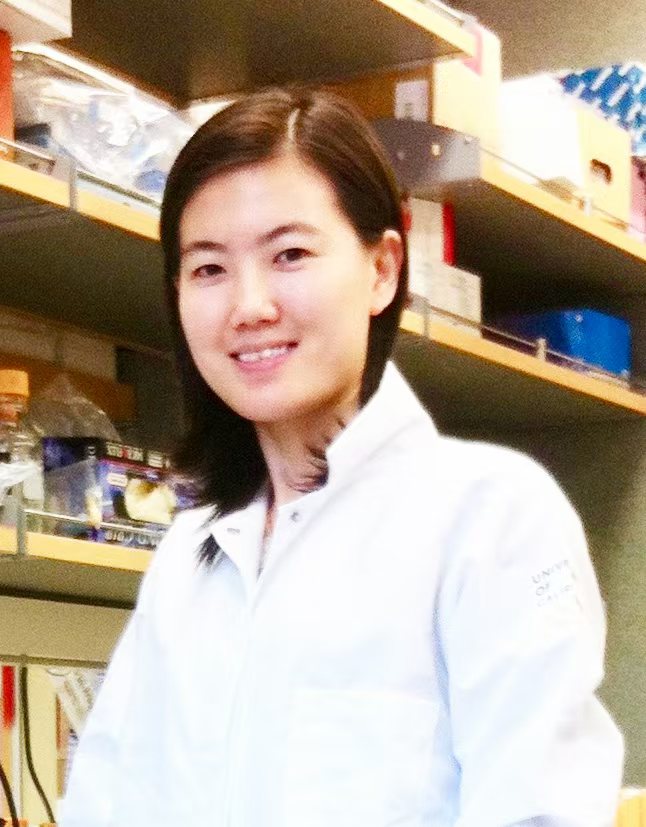
Xiaoying Chen, Ph.D
Phone: 86-10-62787717
Email: xiaoyingchen@tsinghua.edu.cn
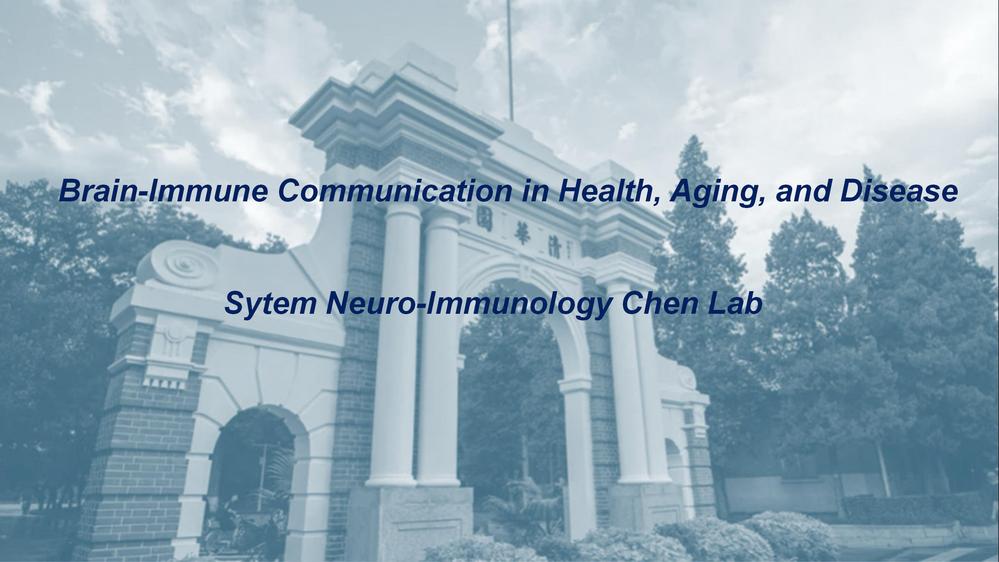
Personnel
Topics of Research
Publications
Photo Gallery
The Laboratory of Xiaoying Chen
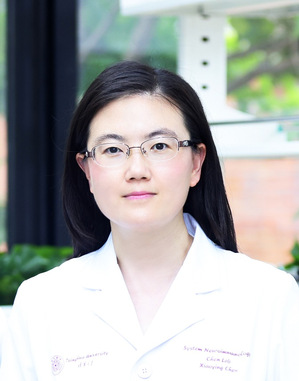
Xiaoying Chen, Ph.D.
Dr. Xiaoying Chen obtained her PhD in immunology and neuroscience from Tongji University/UCLA. She completed her postdoctoral training at Washington University School of Medicine with Dr. Azad Bonni and Dr. David Holtzman. Her research interests focus on understanding the language of brain-immune communication in health and disease. Outside the lab, Xiaoying enjoys spending time in nature.
Education and Research Experience
2025- Tenure-track Associate Professor and Principal Investigator
Institute for Immunology at Tsinghua University
IDG/McGovern Institute for Brain Research at Tsinghua University
Tsinghua-Peking Center for Life Sciences
Brain-immune communication in Alzheimer’s disease
2023-2025 Instructor in the lab of Dr. David Holtzman
Department of Neurology, Washington University, School of Medicine
Neuroimmunology and approaches for the treatment of Alzheimer’s disease
2019-2022 Postdoctoral fellow in the lab of Dr. David Holtzman
Department of Neurology, Washington University, School of Medicine
APOE and immune response in Alzheimer’s disease
2017-2019 Postdoctoral fellow in the lab of Dr. Azad Bonni
Department of Neuroscience, Washington University, School of Medicine
Genetic and epigenetic regulations in learning in adult mammalian brain
2009-2016 PhD dissertation
Departments of Immunology, Neuroscience, Tongji University
David Geffen School of Medicine, UCLA
Neuronal development and maturation
Selected awards
2024 Jeffrey L. Morby Prize for Best Research in Alzheimer’s Disease, Cure Alzheimer’s Fund
2023 Early Career Achievement Award, Alzheimer's Association
2023 AAIC Advancements: Immunity Travel Award, Alzheimer's Association
2023 AAIC Advancements: APOE Travel Award, Alzheimer's Association
2022 Trainee Professional Development Award, Society of Neuroscience
2022 Brain Immunology and Glia Travel Award, Washington University School of Medicine
2022 Poletsky Award, Alzheimer’s Disease Research Center
2022 O’Leary Prize for Best Research in Neuroscience, Washington University
PI: Dr. Chen was a faculty member in the Department of Neurology, Hope Center for Neurological Disorders, Knight Alzheimer’s Disease Research Center at Washington University School of Medicine.
Dr. Xiaoying Chen has contributed significant insights into understanding neuronal plasticity during development (2017, Journal of Neuroscience; 2016, 2020, Protein & Cell; 2020 Nature Communication), learning activities (2022, Nature), and neuron-immune interactions in neurodegenerative disease (2022, Immunity; 2023, Nature). She has received a number of honors and awards, including the Jeffrey L. Morby Prize for Best Research in Alzheimer’s Disease from Cure Alzheimer’s Fund (2024), the Early Career Achievement Award from Alzheimer’s Association (2023), the Career Development Award from the Society for Neuroscience (2023), the Coins for Alzheimer’s Research Trust from Rotary Foundation (2023), the O’Leary Prize for Best Neuroscience Research at Washington University (2022), the Poletsky Award for Alzheimer’s Disease Research from Washington University (2022), and the Tau Consortium Fellowship from Rainwater Charitable Foundation (2019).
She is a member of Society for Neuroscience, Alzheimer’s Association, American Society for Neurochemistry, American Neurological Association and International Society for Molecular Neurodegeneration. Dr. Chen has reviewed papers for journals, including Immunity, Nature Neuroscience, Alzheimer's & Dementia, Science Advances, Cell Reports, Molecular Neurodegeneration, Journal of Clinical Investigation, Journal of Neuroimmunology (Editorial board member), and Translational Neurodegeneration.
Graduate student
Yanli Zhu
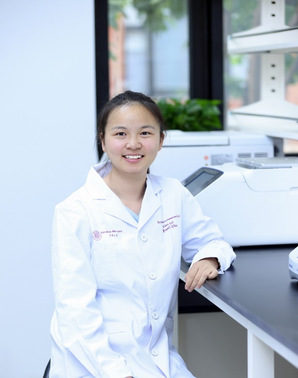
Yanli Zhu is a graduate student in the the Chen Lab, at Tsinghua-Peking Center for Life Sciences (CLS) program. Her research focuses on understanding the regulation of circadian rhythms and immune responses in Alzheimer’s disease. Outside the lab, Yanli enjoys playing baseball and reading papers.
E-mail: zhu-yl24@mails.tsinghua.edu.cn
Postdoc Fellow
Huiwen Qin

Huiwen Qin obtained her Ph.D. from the Institute of Neuroscience, Chinese Academy of Sciences, where she studied microglia states across brain development. In the Chen Lab, she investigates neuro-immune interactions in neurodegenerative diseases. Outside the lab, Huiwen enjoys reading, painting, and cooking.
Undergraduate student
Zihui Wang

Zihui Wang is pursuing her Bachelor’s degree at Tsinghua University. With a strong background in imaging, she has been actively engaged in laboratory research focused on immune cell imaging in health and disease.
E-mail: wangzihu24@mails.tsinghua.edu.cn
Yanling Li
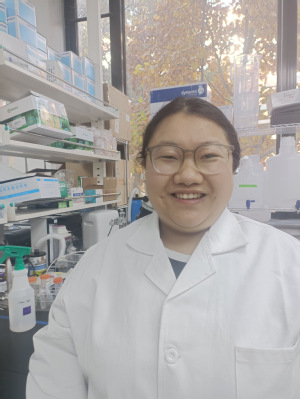
Yanling Li is the laboratory technician in the Chen Lab at Tsinghua University. Her research focus centers on caring for the lab’s 'babies', the mice that support the group's scientific discoveries. She enjoys collaborating with colleagues and contributing to new technologies. Outside the lab, Yanling likes cooking.
Lab Manager
Lianzhang Wang
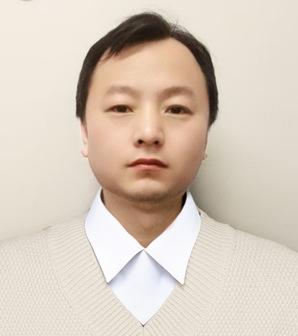
Lianzhang Wang is the senior lab manager in the Chen Lab at Tsinghua University. His research interest is decoding neural circuits involved in learning behavior. In the lab, he enjoys setting up equipment for systems neuroscience experiments and is committed to supporting the success of the next generation of scientists. Outside the lab, Lianzhang enjoys traveling.
E-mail: wanglianzhang@tsinghua.edu.cn
Alzheimer’s disease is the most common neurodegenerative disorder. Pathologically, it is characterized by the aggregation of misfolded proteins, including extracellular deposition of amyloid-β (Aβ) as plaques and intracellular accumulation of aggregated tau as neurofibrillary tangles. The regional progression of brain atrophy in Alzheimer’s disease highly correlates with tau accumulation but not amyloid deposition, and the mechanisms of tau-mediated neurodegeneration remain elusive.
Innate immune responses represent a common pathway for the initiation and progression of some neurodegenerative diseases. So far, little is known about the extent or role of the adaptive immune response and its interaction with the innate immune response in the presence of amyloid-β or tau pathology. Our research first demonstrated that the adaptive immune response drives tau-mediated neurodegeneration and cognitive decline. These findings answer a fundamental question of how does tau aggregation lead to regional neuronal death. A deeper understanding of both innate and adaptive immune responses across the progression of Alzheimer’s disease is likely to reveal novel therapeutic strategies for both preclinical and clinically symptomatic stages of the disease.
My lab focuses on understanding the brain-body interactions in health and disease. Interdisciplinary approaches including, single-cell multi-omics, metabolisms, clarity imaging, in vivo calcium imaging, optogenetics, and in vivo CRISPR gene editing, are applied in understanding the dialogue of brain-immune communication and developing potential therapeutic tools. The major research directions in my lab are
1.Decoding the immune responses in Alzheimer’s disease and therapeutics development
2.Deciphering the brain-immune interface and brain-body interaction
3.Understanding neuronal plasticity throughout Alzheimer’s disease progression
ORCID: 0000-0002-6710-3798
Selected publications:
I- Brain-Immune Communication in Alzheimer's Disease
Carling G, Fan L, Foxe N, Norman K, Wong M, Zhu D, Corona C, Razzoli A, Yu F, Yarahmady A, Ye P, Chen H, Huang Y, Amin S, Sereda R, Lopez-lee C, Zacharioudakis E, Chen X, Xu J, Cheng F, Gavathiotis E, Cuervo A, Holtzman D, Mok S, Sinha S, Sidoli S, Ratan R, Luo W, Gong S, Gan L. Alzheimer’s disease-linked risk alleles elevate microglial cGAS-associated senescence and neurodegeneration in a tauopathy model. 2024. Neuron. 112. 1-20, PMID: 38328219
AAIC, Kloske C, Tansey M, Wilcock D (Chen X, leading the study of Microglia-mediated T-cell infiltration and reactivity) Advancements in Immunity and Dementia Research: Highlights from the 2023 AAIC Advancements: Immunity Conference. 2024. Alzheimer’s and Dementia.PMID: 39692624
AAIC, Kloske C, Bu G, Goate A, Holtzman D (Chen X, leading the study of APOE and immune response in Alzheimer’s Disease) Advancements in APOE and dementia research: Highlights from the 2023 AAIC Advancements: APOE conference. 2024. Alzheimer’s and Dementia. 20, 5815-6664, PMID: 39031528
Chen X, Firulyova M, Manis M, Herz J, Smirnov I, Aladyeva E, Wang C, Bao X, Finn M, Hu H, Shchukina I, Kim M, Yuede C, Kipnis J, Artyomov M, Ulrich J, Holtzman D. Microglia-mediated T cell infiltration drives neurodegeneration in tauopathy. 2023. Nature. 615, 668-677, PMID: 36890231
Chen X, Holtzman D. Emerging roles of innate and adaptive immunity in Alzheimer’s Disease. 2022. Immunity. 55, 2236-2254, PMID: 36351425
II-Genetic and epigenetic regulations in learning in adult mammalian brain
Cellular diversification is critical for specialized functions of the brain including learning and memory. Single-cell RNA sequencing facilitates transcriptomic profiling of distinct major types of neurons, but the divergence of transcriptomic profiles within a specific neuronal population and their link to function remain poorly understood. Using single cell multi-omics, in vivo calcium imaging, optogenetics, CRISPR knockout, and behavior analyses, I discovered a subpopulation neuron that specifically undergoes transcriptomic plasticity in response to neuronal activity and learning. Those findings answer the fundamental question of how diversification of neurons influences learning and memory and opens an entirely new and exciting direction of research in neuroscience for studying functional diversity in subtypes of neurons in response to environmental changes.
Chen X, Du Y, Broussard J, Kislin M, Yuede C, Zhang S, Dietmann S, Gabel H, Zhao G, Wang S, Zhang X, Bonni A. Transcriptomic mapping uncovers Purkinje neuron plasticity driving learning. 2022. Nature.605, 722-727, PMID: 35545673
Chen X, Zhang B, Wang T, Bonni A, Zhao G. Robust principal component analysis for accurate outlier detection in RNA-Seq data. 2020. BMC Bioinformatics. 21, 269. PMID: 32600248
Chen X, Chanda A, Ikeuchi Y, Zhang X, Goodman JV, Reddy NC, Majidi SP, Wu DY, Smith
SE, Godec A, Oldenborg A, Gabel HW, Zhao G, Bonni S, Bonni A. Transcriptional regulator SnoN promotes proliferation of cerebellar granule neuron precursors in the postnatal mouse brain. 2019. J Neurosci. 39, 44-62. PMID: 30425119
Smith SE, Chen X, Brier L, Bumstead J, Rensing N, Epstein A, Oldenborg A, Crowley J, Bice
A, Dikranian K, Ippolito J, Haigis M, Papouin T, Zhao G, Wong M, Culver JP, Bonni A.
Astrocyte deletion of α2-Na/K ATPase triggers episodic motor paralysis in mice via a metabolic pathway. 2020. Nature Communication. 11, 6164. PMID: 33268780
Krishnan N, Chen X, Donnelly-Roberts D, Mohler E.G, Holtzman D. M, Gopalakrishnan, S. M. Small molecule phenotypic screen identifies novel regulators of LDLR expression. 2020. ACS Chem Biol.15, 3262-3274. PMID: 33270420
III-Immune signaling in neuronal maturation
I studied the molecular and cellular mechanisms governing neuropsychiatric disorders by using functional subtype-specific neurons derived from human embryonic stem cells (hESCs) and induced pluripotent stem cells (hiPSCs). I discovered that MeCP2-deficient human ESCs/iPSCs-derived neurons showed aberrant immature action potentials and synaptic transmission. To capture the molecular mechanisms governing neuron electrophysiological maturation at single cell level, I therefore developed electrophysiological recording coupled with single cell transcriptome analysis (Patch-Seq) and revealed a tight link between neuronal maturation and genes involved in ubiquitination, immune function, and oxidative phosphorylation.
Chen X*, Han X, Blanchi B, Guan W, Ge W, Yu YC*, Sun YE*. Graded and pan-neural disease phenotypes of Rett Syndrome linked with dosage of functional MeCP2. 2020. Protein Cell. 12, 639-652. PMID: 32851591 (co-corresponding author)
Chen X, Zhang K, Zhou L, Gao X, Wang J, Yao Y, He F, Luo Y, Yu Y, Li S, Cheng L, Sun YE.
Coupled electrophysiological recording and single cell transcriptome analyses revealed molecular mechanisms underlying neuronal maturation. 2016. Protein Cell. 7, 175-186. PMID: 26883038 (Cover research)
Chen Y, Yu J, Niu Y, Qin D, Liu H, Li G, Hu Y, Wang J, Lu Y, Kang Y, Jiang Y, Wu K, Li S, Wei J, He J, Wang J, Liu X, Luo Y, Si C, Bai R, Zhang K, Liu J, Huang S, Chen Z, Wang S, Chen X, Bao X, Zhang Q, Li F, Geng R, Liang A, Shen D, Jiang T, Hu X, Ma Y, Ji W, Sun YE. Modeling Rett Syndrome Using TALEN-Edited MECP2 Mutant Cynomolgus Monkeys.
2017. Cell. 169, 945-955. PMID: 28525759
Liu H, Chen Y, Niu Y, Zhang K, Kang Y, Ge W, Liu X, Zhao E, Wang C, Lin S, Jing B, Si C, Lin Q, Chen X, Lin H, Pu X, Wang Y, Qin B, Wang F, Wang H, Si W, Zhou J, Tan T, Li T, Ji S, Xue Z, Luo Y, Cheng L, Zhou Q, Li S, Sun YE, Ji W. TALEN-mediated gene mutagenesis in rhesus and cynomolgus monkeys. 2014. Cell Stem Cell. 14, 323-328. PMID: 24529597

Copyright © 2017 Institute for Immunology Tsinghua University
Contact Address: Room D302, Medical Science Building, Tsinghua University, Beijing 100084, China
Tel: (86) 10-62776420 Fax: (86) 10-62776420
